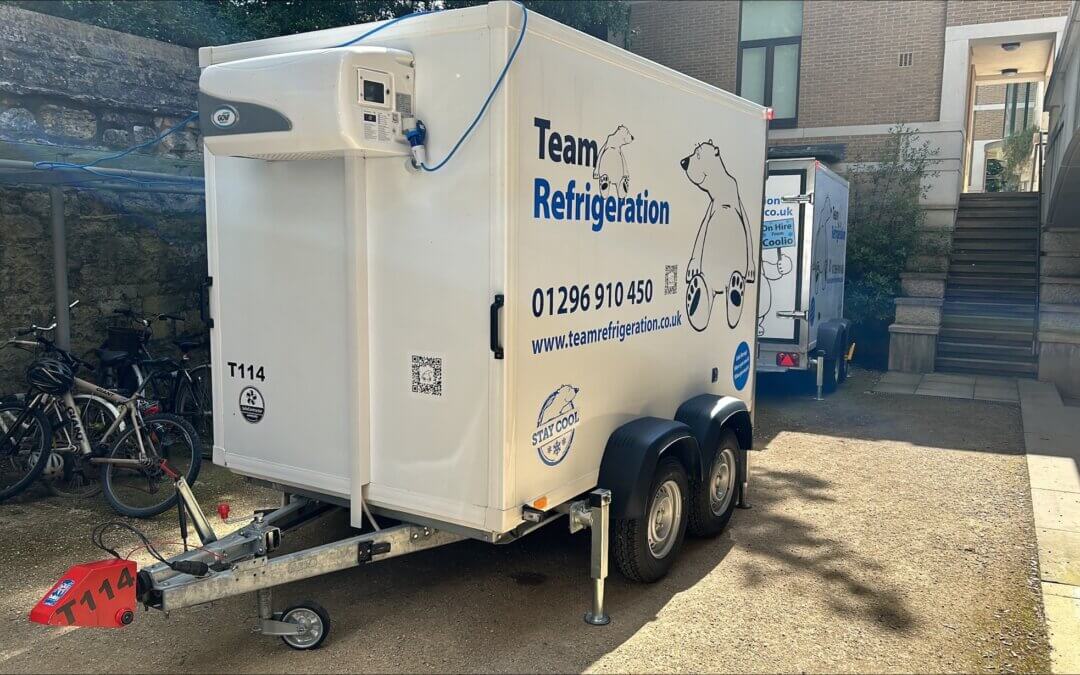The Basics of Refrigerated Trailers
Refrigerated trailers are designed to maintain the temperature of your products, not to cool them down from high temperatures. They are experts in keeping things steady, ensuring your goods stay at the desired temperature.
Heat can sneak into trailers through walls, door gaps, floors, and ceilings, but modern units are well-insulated to keep the heat out. They use four main components to keep things cool:
- Thermal Integrity: Prevents additional heat from entering.
- BTU Capacity: Removes the expected amount of heat.
- Airflow: Ensures sufficient air movement.
- Air Velocity: Moves air through the trailer, over, and through the load.
Regular maintenance and proper loading are key to the success of these components.
How It All Works
Refrigerated trailers use a refrigeration cycle involving a few key parts:
- Compressor: Driven by a small engine, it compresses gaseous refrigerant into a liquid, giving off heat.
- Condenser: Cools the liquid refrigerant by transferring heat to the outside air, similar to a car radiator.
- Evaporator: The cooled liquid expands back into a gas, absorbing heat from the trailer’s air and keeping the cargo cool.
This cycle ensures that your products stay at the perfect temperature.
Maintenance is Key
Keeping your refrigerated trailer in top condition is crucial. Regular checks for oil leaks, belts, and hoses are a must. Standard units need oil and filter changes every 1,500 hours, or every few months, depending on usage. Clear air passages and clean channels on the floor are also essential to prevent debris from affecting cooling.
Stay Cool with Team Refrigeration
Need a refrigeration solution? Look no further! At Team Refrigeration, we’re experts in keeping things cool. Contact us today to learn more about our mobile refrigerated trailers and how they can benefit your business.

